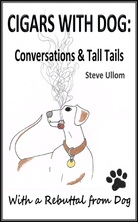Denise Levertov talks of the poets in the Northwest, who write with a dimension that takes in not just "the appearance of phenomena, but the presence of spirit WITHIN the phenomena." ("Some Affinities of Content", 1991) To give an example of this, she quotes a poem by Sam Hamill, Black Marth Eclogue. Part of this poem, about a heron, I will quote here:
"He stands in the black marsh
more monument than bird, a wizened prophet
returned from a vanished mythology.
He watches the hearts of things."
This is such an outstanding poem, and displays perfectly the spirit of the bird, as well as the bird itself - an ephemeral meaning behind eye and feather - without interposing the viewer. The scene has a spiritualism all of its own, a proto-spiritualism. The heron, a large bird, is presented as a prophet of old, and all sorts of imagery and meaning is brought to bear. With that meaning, confronting a prophet of the past, we move in our minds. We get an escape from the city life we face, an escape from the stresses of honking cars, work deadlines, and bills due, into a scene of peace, of myth, of something older and wiser than us. Through that, we can inject our issues. That issue may strike each of us differently. The art has drawn us in. For some it could be, "Where should we be? What should we be seeking?"
An example not from nature, but still of this phenomenon and the spirit within, is in a poem by Barbara Alfaro, The Rocking Chair, from First Kiss (2012). Here, the literal spirit of a boy is present, but it's the deeper spirit of loss, of hanging on, that moves this. The opening is quoted here:
"In the nursery the ghost of a boy stands
on a rocking chair, holding its back.
A miniature prisoner of wood,
he is looking through its slats."
We look through the slats of such good poems and writing, and find our own spirits, our own issues, and our escapes. We may or may not have suffered the loss of a child, but all of us have lost, and hung on. Who has not been a miniature prisoner at some point in their lives? Or looked through our own slats? Hopefully, we read and write ourselves to go on, to be better, to find the spirit of an event, a place, a bird, or a rocking chair not yet thrown away. Then, we find the spirit of a thing, and perhaps, maybe, of ourselves.

 RSS Feed
RSS Feed
